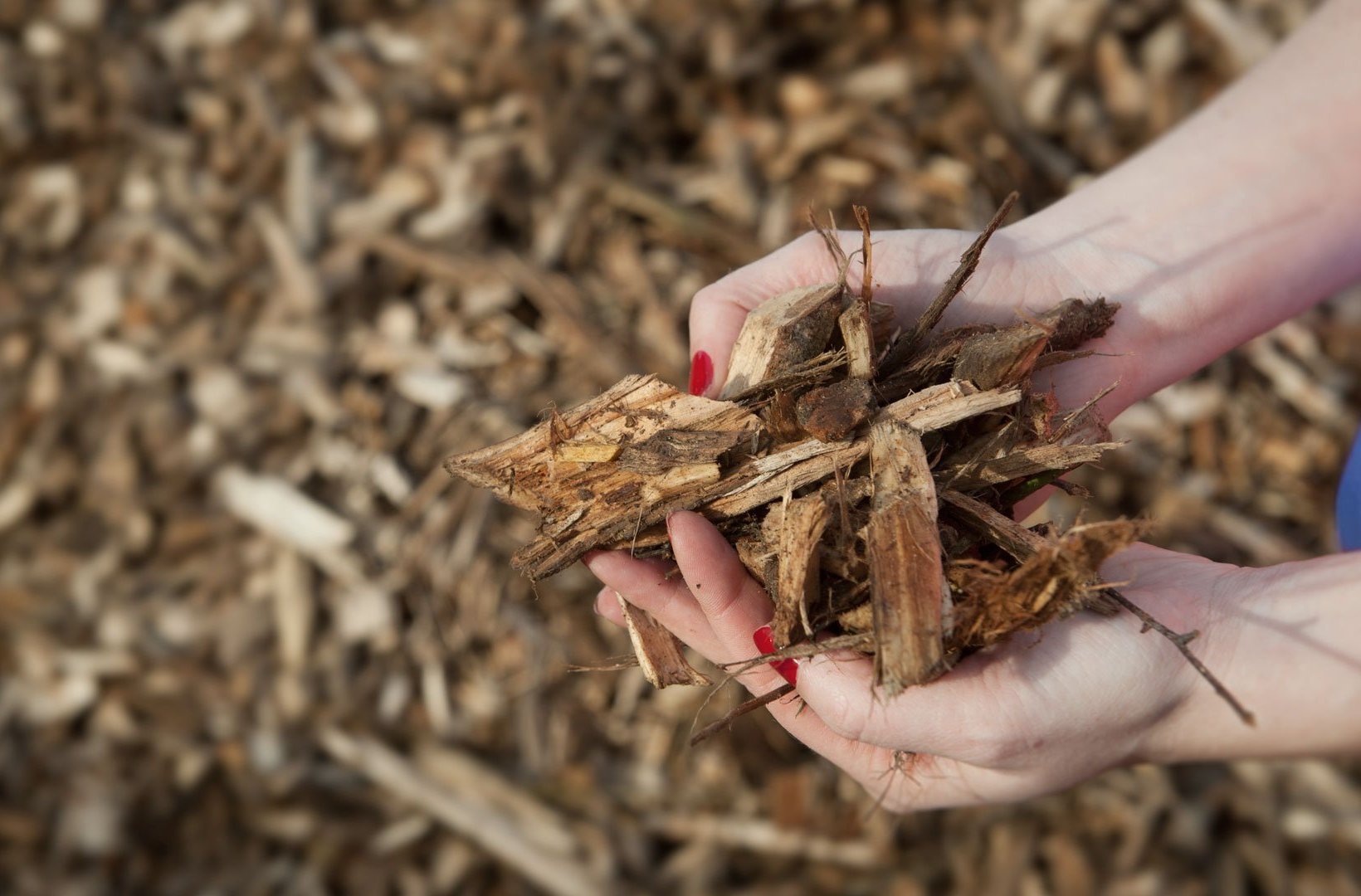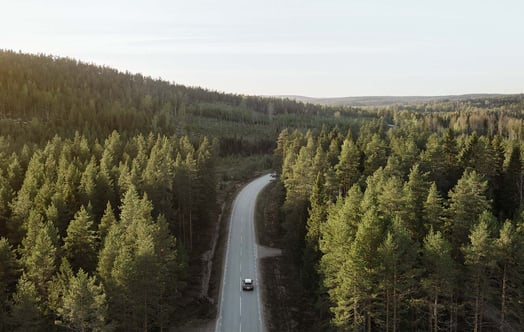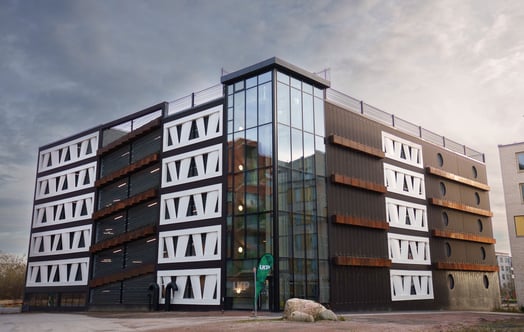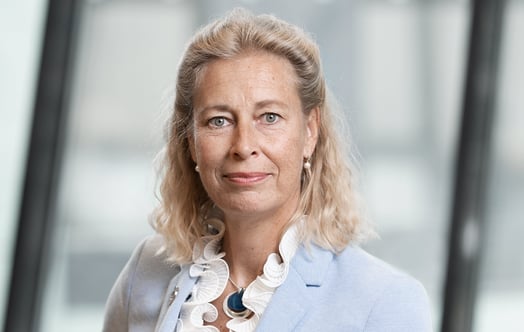Ulrika Jardfelt, Senior Vice President Business Area Heat at Vattenfall comments on an open letter from a number of environmental organisations on Vattenfall’s use of biomass.
On 13 April, an open letter from a number of environmental organisations was sent to several Vattenfall executives. The letter, which was critical of Vattenfall’s use of biomass, contained several misconceptions. Ulrika Jardfelt, Senior Vice President Business Area Heat at Vattenfall addressed these in her reply to the senders on the 22 April.
Read the full reply from Ulrika Jardfelt below:
Dear all,
Thank you for your letter to Vattenfall. Vattenfall is fully committed to our goal of fossil free living within one generation. Every business decision we take is measured against this goal. Not only are we committed to phase out remaining fossil fuels from our own operations, but we also work together with customers and partners to help them decarbonise. The basis for this is our fossil free electricity generation from hydro, nuclear, wind and solar power. We are investing heavily in new fossil free energy production, mainly wind power and are right now building what will be the world’s largest offshore wind farm in the Netherlands.
Last autumn we sharpened our climate goals and committed to the 1.5 degree target in line with the Paris Agreement. This has been verified by the Science Based Targets Initiative (SBTi) and it means that we are one of few energy companies that has taken this step and that our plans are in line with the latest climate research. We have also decided to become net-zero in our full value chain by 2040.
As a direct consequence of Russia’s invasion of Ukraine, Vattenfall has stopped buying coal from Russia, and the last delivery was received end of March. Vattenfall is not sourcing any biomass from Russia either. Vattenfall does not have any long-term gas contracts with Russian counterparties. We purchase natural gas on five major trading hubs in Europe. As we buy at hubs, we cannot know nor influence from where the gas originates. This is a question for European politicians. We have understood that approximately 40 per cent of the natural gas that is sold in Europe originates from Russia and that Europe is looking to lower the exposure to Russian gas, which Vattenfall is of course positive to.
In several countries the dependency on fossil fuels is still high, not least when it comes to heating of homes. When phasing out coal, natural gas has been seen as a bridge technology for many countries, with approximately half the CO2-emissions compared to coal.
Vattenfall believes that woody biomass and residual wood that meets robust sustainability criteria can and should make a positive contribution to the energy transition and climate change mitigation by replacing fossil fuels (coal, oil and gas). Vattenfall sources biomass from sustainable sources only. We only use residual wood, processing residues from industries like furniture production and recycled waste wood which comes in the form of chips. Some wood also originates from agricultural degraded land in Germany, then this includes wood from short-rotation plantations with fast-growing tree species.
In Germany, Vattenfall’s focus is to phase out coal in our district heating in Berlin by 2030 and become climate-neutral by 2040. To convert existing plants or build new district heating capacity Vattenfall will use a combination of biomass, waste heat, natural gas, power-to-heat, large heat pumps and heat storage. Vattenfall already uses waste heat and biomass and operates a power-to-heat plant. In 2011, the City of Berlin and Vattenfall agreed on specific sustainability criteria for biomass fuels and plants. During May 2021, a renewed ´sustainability agreement´ with a contract duration of 10 years was finalized between the City of Berlin and Vattenfall.
Woody biomass is expected to play a continuous important role for several industries, also for heating. To which extent and in which way can differ per country, depending on market conditions and costs of transportation. In forest-rich countries like Sweden, byproducts from the forest industry will be continuously used in the heating sector.
In the Netherlands, there is an ongoing debate about a planned biomass-fired plant in Diemen that would be equipped for pellets. Vattenfall has not made a definitive decision on the realisation of this plant.
We believe that continuous improvements of sustainability regulations and certifications on woody biomass are needed in order to balance the different perspectives of climate, biodiversity, economy and society. We want to find this balance in close cooperation with key stakeholders in our society and are therefore welcoming an open and constructive discussion.
Best regards,
Ulrika Jardfelt, Senior Vice President Business Area Heat at Vattenfall
The above letter was sent to the following recipients on 22 April 2022:
- Almuth Ernsting, Biofuelwatch, UK/USA
- Fenna Swart, Clean Air Committee NL (Comité Schone Lucht), Netherlands
- Sophie Bastable, The Forests, Climate and Biomass Working Group (EPN), International
- Uwe Hiksch, NaturFreunde Deutschlands, Germany
- Johan Vollenbroek, Mobilisation for the Environment, Netherlands
- Maarten Visschers, Leefmilieu, Netherlands
- Lina Burnelius, Protect the Forest Sweden
- Fred Vos, Duurzaam Dorp Diemen, Netherlands
- Jana Ballenthien, ROBIN WOOD, Germany
- Sascha Müller-Kraenner, Deutsche Umwelthilfe, Germany
- Lisa Kadel, Kohleausstieg Berlin, Germany
- Leif Miller, NABU (Naturschutzbund Deutschland e.V.), Germany
- Sommer Ackerman, Luonto-Liitto, Finland
- Isabelle Axelsson, Europe Beyond Burning, Europe
- Anton Foley, Fridays For Future Sweden
- Rita Frost, Dogwood Alliance, USA
The open letter from the above organization representatives was sent to Vattenfall executives on 13 april and was published on Biofuelwatch.org.uk




